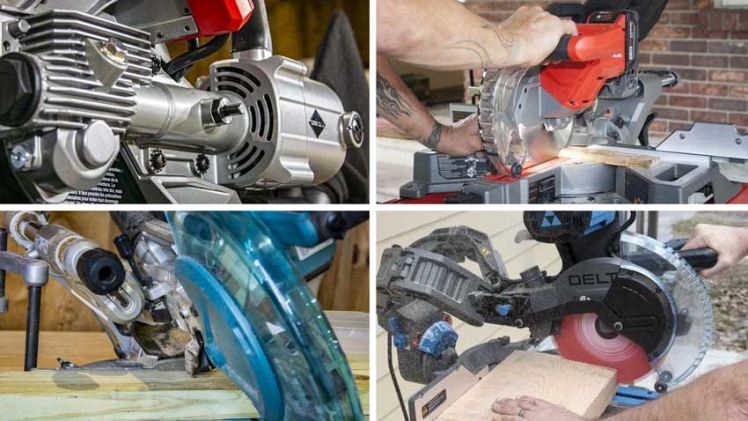The construction industry relies heavily on a wide range of professional saws to cut, shape, and prepare different materials. From wood framing to concrete cutting, having the right saw for the job is crucial for achieving precise cuts, ensuring safety, and maintaining efficiency in construction projects. Choosing the right saw for the task at hand is essential, whether for general cutting tasks, precise angles, large sheet materials, or specialized saws for cutting concrete, tile, or metal. The article will explore the various professional saws helpful in the construction industry.
1. Walk Behind Saws
Walk-behind saws are powerful cutting tools in the construction industry for cutting through concrete, asphalt, and other hard materials. They use a diamond blade that rotates at high speeds to make precise and clean cuts. Walk-behind saws are available in different sizes and configurations, ranging from small handheld units for lighter tasks to larger self-propelled machines for heavy-duty cutting. Able Sales, a renowned manufacturer of construction equipment, offers a wide range of walk-behind saws to suit various cutting requirements. Their walk-behind saws are known for their durability, efficiency, and exceptional cutting performance. With Able Sales’ reliable machines, contractors and construction professionals can confidently tackle any cutting project with ease and precision.
They are commonly helpful for cutting expansion joints, trenches, and control joints in concrete slabs, roadwork, and other construction projects. Walk-behind saws are essential for achieving accurate and efficient cuts in hard materials, improving productivity and ensuring high-quality results. You can consult a professional construction saws manufacturer to learn more and for professional advice to make the right choices and achieve the best results.
2. Early Entry Concrete Saws
Early entry concrete saws are specialized cutting tools used in the construction industry for cutting control joints in freshly poured concrete. They minimize the risk of random cracking in concrete by creating controlled cuts before the concrete fully cures.
Early entry saws typically feature a diamond blade that cuts through the concrete while still in its early hardening stage, preventing uncontrolled cracking and ensuring a clean and precise cut. These saws are typically lightweight and easy to handle, making them ideal for cutting control joints in slabs, driveways, sidewalks, and other concrete surfaces soon after pouring.
3. Belly Saws
Belly saws are specialized cutting tools helpful in the construction industry for cutting through pipes, whether plastic, PVC, cast iron, or other materials. These saws make clean and precise cuts on pipes of various sizes and diameters. Belly saws typically feature a circular blade that rotates at high speeds and can be pneumatic or hydraulic.
They are helpful for tasks such as installing plumbing systems, repairing or replacing pipes, and other pipe-related construction projects. Belly saws are essential for achieving accurate cuts on pipes and ensuring proper fit and functionality in plumbing and pipe installation projects.
4. Joint Clean-Out Saws
Joint clean-out saws are specialized cutting tools in the construction industry for cleaning or widening joints or cracks in concrete or masonry surfaces. They make precise and clean cuts along the joints or cracks, removing debris, old sealants, or damaged materials to prepare the joint for repair or sealing.
Joint clean-out saws typically feature a diamond blade that rotates at high speeds and is adjustable to different depths and widths to suit the specific joint or crack requirements. They are helpful in concrete repair, restoration, and sealing projects to ensure a proper and clean joint or crack preparation for effective repairs or sealing applications.
5. Chain Saws
Chain saws are potent tools crucial for cutting through wood and other materials in the construction industry. They are designed with a chain-driven blade that rotates at high speeds, making them ideal for cutting trees, trimming branches, and processing wood on construction sites.
Chain saws come in various sizes and configurations, including gasoline-powered or electric options. They can be helpful in a wide range of cutting applications in construction, woodworking, and landscaping projects. However, proper training and safety precautions are fundamental when using chainsaws due to their high power and potential hazards.
Conclusion
Suitable professional saws are essential for various cutting tasks in the construction industry. Selecting the appropriate saw for the task at hand can significantly improve construction site productivity, accuracy, and safety. Identifying a professional and reliable manufacturer for construction tools, including saws, can be crucial in ensuring the quality, durability, and security of the devices you purchase. However, it’s vital to undertake proper training and follow safety precautions and maintenance when using these professional saws to ensure efficient and safe cutting operations.

